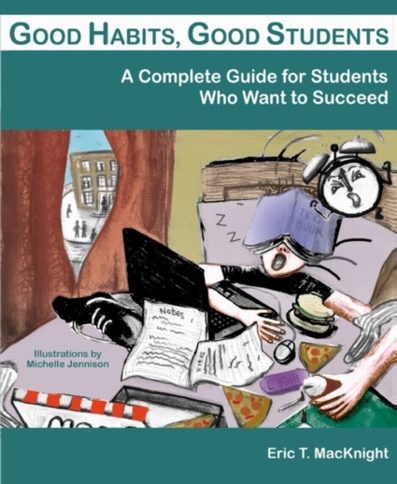Good students are readers.
Why? First, they have a large store of background knowledge. Second, they have large vocabularies. Third, they can read quickly with excellent comprehension.
Reading is a habit that can be acquired, like any other habit. The lucky people acquire the habit of reading when they are little children. They’re the ones who must be forced to put down their books to come to the dinner table; who stay up past their bedtime, reading by flashlight under their blankets; who sit in the backseat of the car with their nose in a book; and who long for summer, when they will have time to do nothing else but read.
If you are one of these people, skip the rest of this section and go on to other good habits that you may not have acquired.
If you’re not yet a habitual reader, begin now. Establish a fixed time of day, and read every day—365 days a year—at that time. For most of us, this will be either when we first wake up or just before we go to sleep at night.
At first, set your timer for 15 minutes. Eliminate all possible interruptions, and read continuously for the full 15 minutes, every day. Stick to this routine until it becomes automatic, until it stops being a chore and becomes a pleasure instead. Then, increase the time to 20 minutes. When 20 minutes becomes a pleasure add five minutes, and continue this way until you are reading 30 minutes every day of the year.
Don’t make the mistake of trying to read longer than 15 minutes before you really enjoy it. Even if you read slowly, stick to the 15-minute time limit.
If your reading is quite slow, then you are trying to read material that is too difficult for you right now. Think of tennis: you wouldn’t try to improve your game by playing against a Wimbledon champion, nor by playing against your baby sister. Instead, you would want a tennis opponent who is just as good as you, or a little bit better. In the same way, choose reading material that is at your level, or just a little bit higher, and interesting to you. That way, you’ll make maximum progress.
What should you read? Everything. Read as wide a variety of books, magazines, and newspapers as possible. Newspapers and news magazines will teach you not only about current events, but also about history, geography, politics, society, and culture.
Read stories, poems, novels, plays; history (biographies are a wonderful introduction to history); geography; natural science; legends and myths from many cultures; and later on, politics and philosophy.
To gain a basic understanding of Western culture, you should be familiar with Greco-Roman mythology and the Bible—not as religious texts but as the major sources of Western stories, expressions, and cultural assumptions. Students who know from childhood about Helen of Troy and the labours of Hercules, who know about the Garden of Eden, Moses, and the parables of Jesus, will have a great advantage over their classmates who must begin learning these stories and many more at age 14 or 15.
Everything connects with everything else, and the more you read, the more you will see those connections. If you keep it up, you will eventually have the right to call yourself an educated person.

